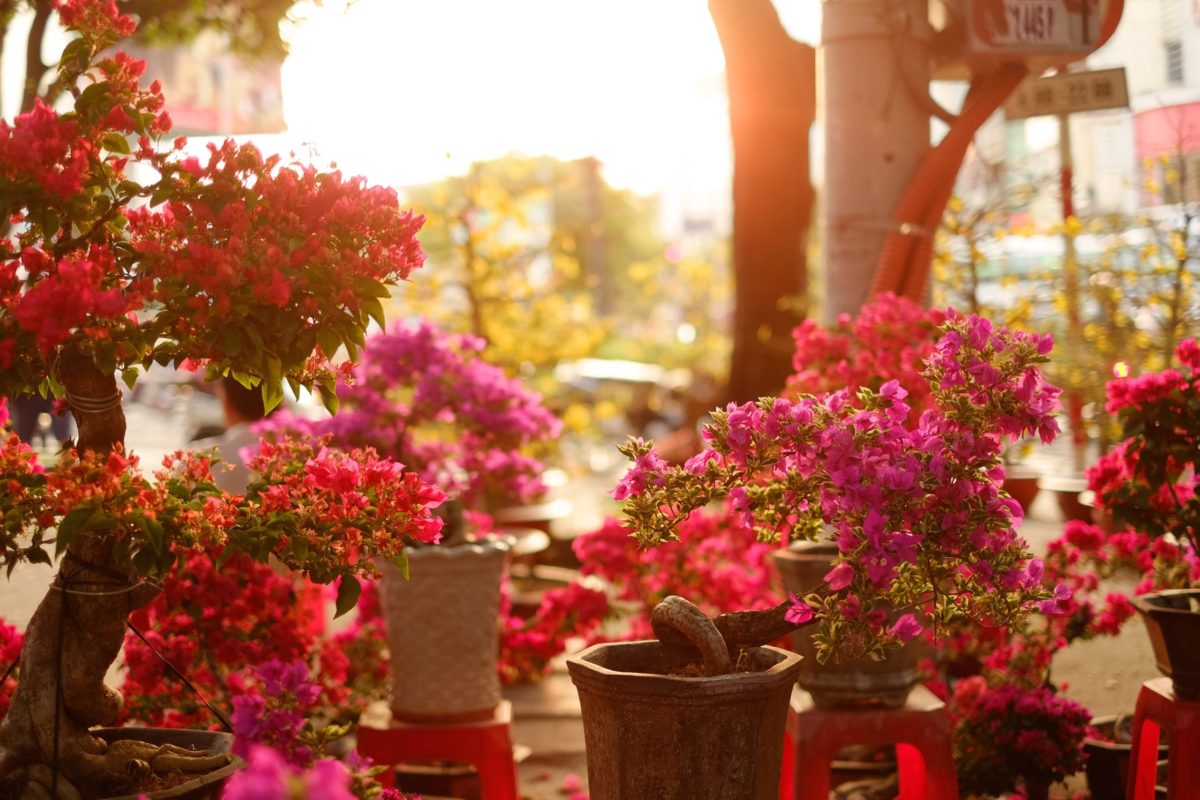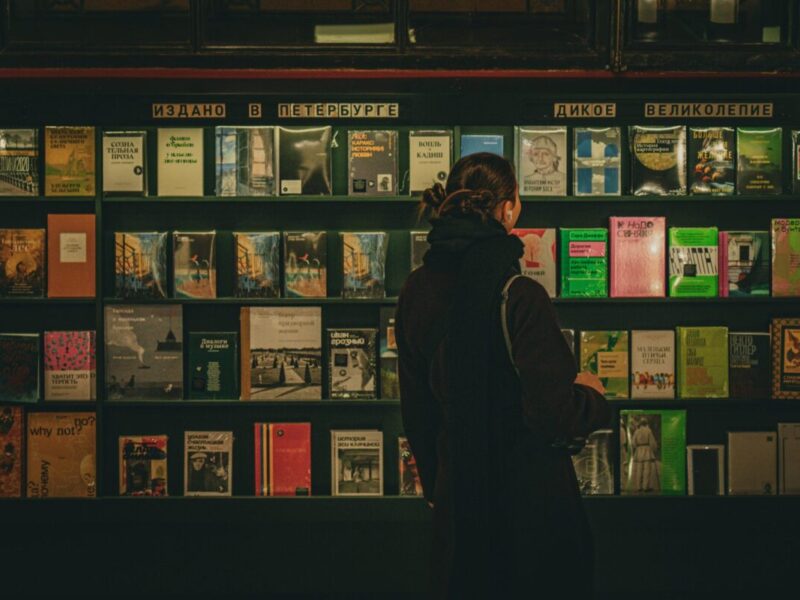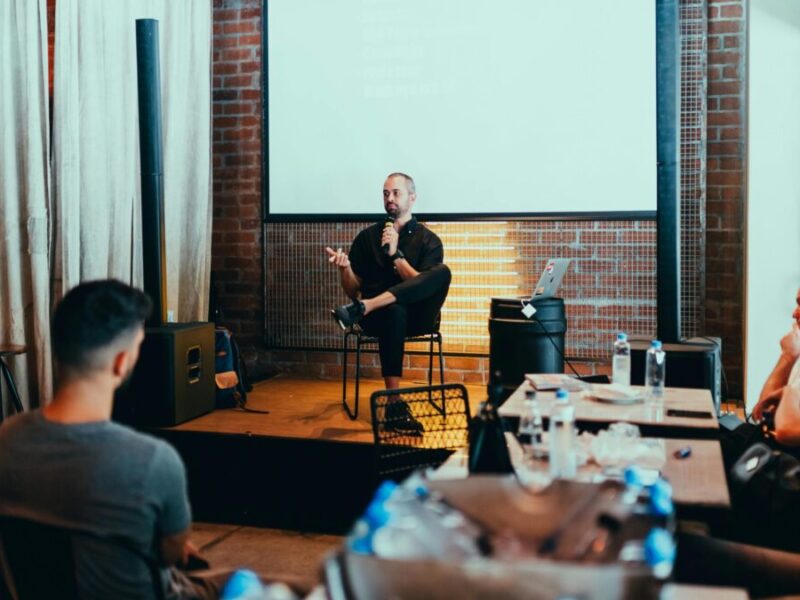Tet in Vietnam is a festive and important tradition to celebrate the Lunar New Year. For 2020, Tet begins on January 25th, but preparations start one or two weeks before. Families create altars for ancestors, cook sticky rice cakes with mung beans and pork, display kumquat trees, clean their houses, decorate with flowers, and make many preparations. According to the travel guide, Lonely Planet: “Tet is Christmas, New Year, and birthdays all rolled into one.” Children receive gifts and watch firework shows organized by their local governments.
Since Tet lasts one week, many Vietnamese take time off from work to party and enjoy time with their family and friends. They also remember ancestors that have passed on with prayers and incense. A special custom and ritual for the first day of the new year is to invite a prosperous family member into the home as that person is believed to bring luck and good health for the entire family. Like Western countries on New Year’s Eve, people remain positive during Tet to receive a fresh start for the rest of the year.
To celebrate this fun and popular holiday, let’s read some great Vietnamese poetry. Below are three talented poets whose work represents the culture and history of Vietnam.
NGUYEN QUANG THAN
Our first exploration of Vietnamese poetry begins with a love story. Nguyen Quang Than was a successful and well-known journalist, writer, and poet who lived until he was 82. He was married to the writer, Da Ngan, who fictionalized their relationship in the feminist novel, An Insignificant Family. Their relationship began as forbidden love and spanned eleven years of long-distance: She was living in the south of Vietnam, and he was living in the north.
During this time, Than wrote Ngan around 100 letters, and within these letters were love poems tinged with the ache of longing. Poet, Paul Christiansen, and writer, Thi Nguyen,translated “I Wander Alone” and released it in the lifestyle publication, Saigoneer. The poem was written in 1982, a time when just to meet, they would have to take a 60-hour dangerous train ride. Last year was the first time the words became available in English. When I read them, I was immediately captivated by the yearning and passion of Than’s poetry.
In an interview with Da Ngan, I discovered more about their story: She considers him her soulmate and continues to share his work with the world. His photographs hang on her walls, and his altar is still fresh with adornments. Now that’s a beautiful romance worth celebrating for the Lunar New Year.
THICH NHAT HANH
Thich Nhat Hanh is a well-known Buddhist monk, Zen master, poet, and writer who has published many bestselling books about mindfulness. Considered by Oprah Winfrey to be “one of the most influential spiritual leaders of our times,” he has devoted his long life to teaching the world about compassion and peace. In 1967, he was nominated for the Nobel Peace Prize by Dr. Martin Luther King, Jr. During this time, he traveled to the U.S. and to Europe to convince leaders to end the war in Vietnam. His activist efforts led the Buddhist delegation for the Paris Peace Talks in 1969.
One of my favorite poems of Thich Nhat Hanh’s is the profound, “Please Call Me By My True Names.” In the poem, he reflects on the beauty and violence that exist not only in nature but also in human beings. While the poem seems controversial on the surface, if seen from a deeper perspective, elements of Buddhism become evident. Buddhists believe that humans and nature are spiritually interconnected rather than separate.
In his book, Being Peace, Thich Nhat Hanh wrote that “Please Call Me By My True Names” was born out of compassion for the suffering that happened to refugee girls during the Vietnam war: They were harmed by Thai sea pirates while fleeing the country. In the poem, Thich Nhat Hanh identifies with both the girl and the pirate: He chooses to have compassion for both. In Being Peace, he also wrote that while he was helping victims of the Vietnam war rebuild villages that had been destroyed by bombs, many of his Buddhist friends were killed. He argues that even then he did not side with communists or anti-communists. That is his way of showing compassion: by trying to understand both sides.
OCEAN VUONG
Our last poet is a great introduction to readers wanting to learn about Vietnamese culture without the need for translations. Ocean Vuong was born in Saigon but came to the U.S. when he was two years old. According to the Poetry Foundation, Vuong often “explores transformation, desire, and violent loss” in his poetry. This is a video of him talking about how the Vietnam war affected his family and how poetry is an oral tradition in Vietnam.
Vuong is not only talented but also very successful. Among his many accolades, he is the recipient of the 2014 Ruth Lilly / Sargent Rosenberg Fellowship, the 2017 T.S. Eliot Prize, and the 2019 MacArthur Foundation Fellowship. He’s also a New York Times bestselling author.
Vietnam is a country rich with history and gorgeous sceneries. If you can’t travel there, the next best journey is to explore the country’s literature through both classic and modern poetry. And don’t forget, on January 25th, we all have an excuse to party again: this time for the Lunar New Year!




